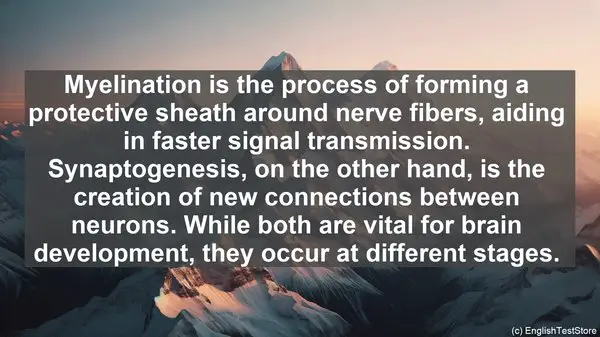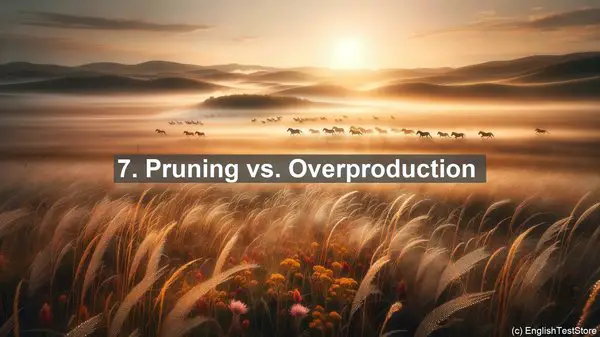Introduction
Welcome to today’s lesson on the top 10 commonly confused words in developmental neuroscience. As you delve deeper into this field, it’s essential to have a clear understanding of these terms. Let’s get started!
1. Plasticity vs. Flexibility
Plasticity refers to the brain’s ability to change and adapt, while flexibility is the ease with which the brain can switch between different tasks. Though related, they have distinct meanings. Understanding the difference is crucial for comprehending brain development processes.

2. Sensitive Period vs. Critical Period
Both terms refer to specific time windows when the brain is highly receptive to learning. However, a sensitive period is more flexible, with learning still possible outside that window. In contrast, a critical period denotes a time when learning is optimal, and it becomes significantly harder later on.
3. Myelination vs. Synaptogenesis
Myelination is the process of forming a protective sheath around nerve fibers, aiding in faster signal transmission. Synaptogenesis, on the other hand, is the creation of new connections between neurons. While both are vital for brain development, they occur at different stages.
4. Assimilation vs. Accommodation
These terms, introduced by Jean Piaget, describe how individuals incorporate new information. Assimilation involves fitting new experiences into existing mental frameworks, while accommodation requires modifying those frameworks to accommodate new knowledge.
5. Nature vs. Nurture
The age-old debate! Nature refers to the influence of genetics and innate factors on development, while nurture encompasses the impact of the environment and external experiences. It’s now widely accepted that both play significant roles, with intricate interactions between them.
6. Maturation vs. Learning
Maturation refers to the natural unfolding of biological processes, leading to developmental milestones. Learning, on the other hand, involves acquiring new skills or knowledge through experiences. While they often go hand in hand, they are distinct processes.
7. Pruning vs. Overproduction
During brain development, there is an initial overproduction of neurons and synapses, followed by a pruning process where excess connections are eliminated. This fine-tuning is crucial for optimizing brain function and efficiency.

8. Executive Function vs. Cognitive Control
Both terms refer to higher-order cognitive processes involved in goal-directed behavior, decision-making, and self-control. While executive function is a broader concept, cognitive control specifically focuses on the regulation of thoughts and actions in the face of conflicting information.
9. Theory of Mind vs. Empathy
Theory of Mind refers to the ability to understand and attribute mental states to oneself and others. Empathy, on the other hand, involves sharing and understanding the emotions of others. While related, they have distinct components and developmental trajectories.
10. Neuroplasticity vs. Neurogenesis
Neuroplasticity encompasses the brain’s ability to reorganize and form new connections throughout life. Neurogenesis, on the other hand, specifically refers to the generation of new neurons. Both processes are essential for learning and adaptation.
